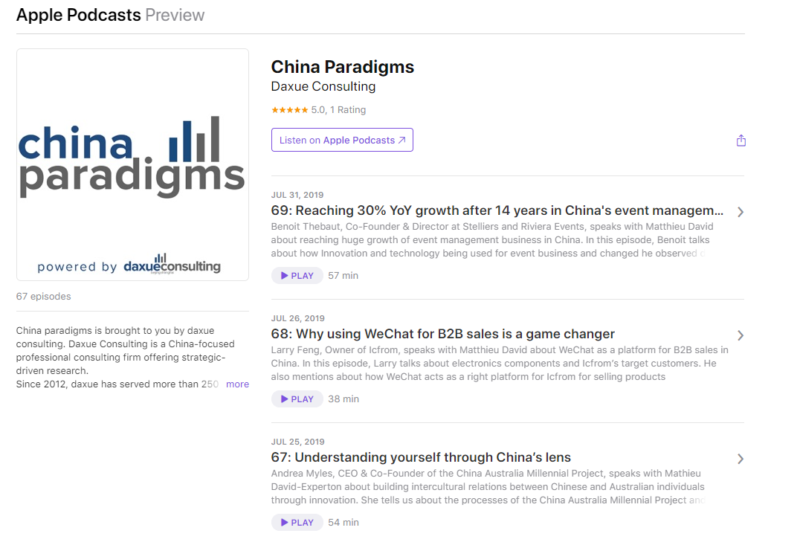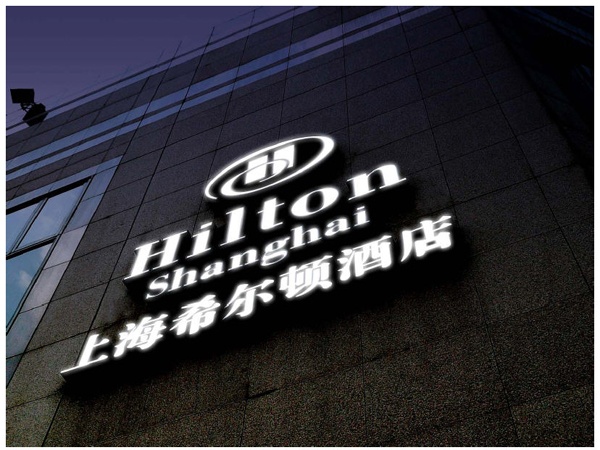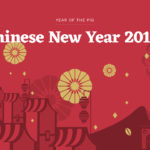How to choose a Chinese name for a foreign brand| Daxue Consulting
Foreign brand names in China
Translating Western Brands in China
With the unprecedented economic growth that has characterised China in the last decades, more and more foreign companies, especially luxury brands, see an opportunity to enter the Chinese market. The trending expansion towards the East has become a sort of new frontier for high-end manufacturers based in Europe, North America, and Japan. This is because, with a population of about 1.4 billion and the largest middle-class in the world, the Chinese consumer market is showing a growing appetite for high-quality products. That is why successful Western brands in China have what Daxue Consulting calls brand-naming strategy.
How to make a Chinese brand-naming strategy
In order to facilitate the outreach of foreign luxury brands, the “sinicisation”— the acquisition of characteristics connected to the Chinese culture—of even the most famous brand names is a necessary prerequisite to conquer the Middle Kingdom. In fact, the necessity to adjust a brand name from its, usually, Indoeuropean linguistic origin (the language family that comprises almost all European languages) to Chinese Mandarin, which belongs to the Sino-Tibetan language family, stems from very practical reasons. First of all, there is a great difference between the phonetic systems (the sounds that compose a specific language) that we usually find in Indoeuropean languages like English, French and Italian and the phonetic system of Chinese Mandarin. Secondly, Chinese characters are the official writing system in China, and it does not take long before realising that the Chinese writing system works in a completely different way from Latin- or Arabic-based alphabets.
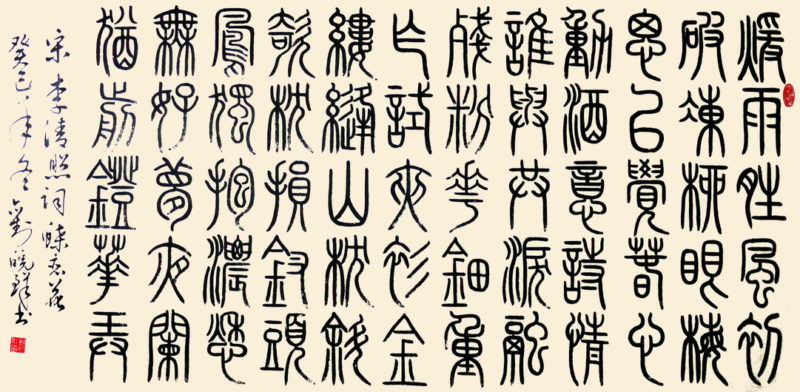
Foreign Brands in China and the challenge of Chinese characters
Every successful marketing strategy starts from a good visual representation of a brand name. Western brand names in China are no exception to the rule. For this reason, the way a company’s name is written may make the difference between success and failure. Therefore, a proper transliteration of a foreign brand into Chinese characters may open the doors to a market that has no equals in terms of size and potential for growth. At the same time, a failing brand-naming strategy may turn business into a nightmare. But why is brand naming in China so complicated?
Brand naming in China and the Chinese writing system
Chinese characters form a writing system that has much more in common with Sumerian cuneiform and Egyptian hieroglyphics than it has with Latin and Arabic letters. For this reason, the Chinese writing system is officially classified as logographic, which means that a single Chinese character roughly corresponds to a word. The Latin and Arabic alphabets, on the other end, are composed of letters, which represent the individual sounds (phonemes) of a word. This means that a foreign brand name may not be easy to transliterate into Chinese characters unless it is adapted to the characteristics of the Chinese writing system. However, this is only the first challenge that foreign brands in China need to overcome in order to seize the opportunities offered by this expanding market. As we will explain in the following chapters, there are still a number of linguistic barriers that the marketing department of every foreign company must reckon with before approaching the Chinese audience.
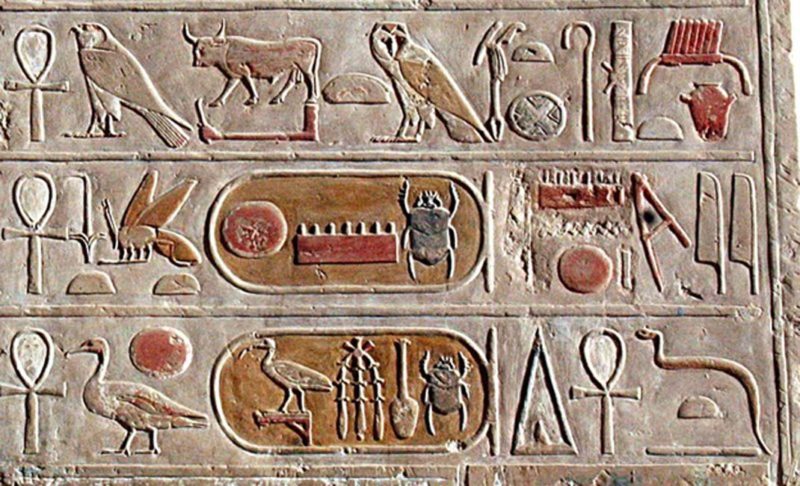
How phonetics affects the choice of a brand name in Chinese
Phonetically speaking, On the one hand, European languages are characterised by the presence of polysyllabic (multiple syllables) words, on the other hand, Mandarin is characterised by the presence of mostly monosyllabic (one syllable) and disyllabic (two syllables) words. These differences, together with a number of other linguistic characteristics that set Chinese Mandarin apart from its European counterparts, make it extremely difficult for native speakers of Chinese to pronounce foreign brands like Ferrari and Lamborgini. In fact, these two famous Italian brands should be pronounced with the typical Italian rolled /r/, which is dreaded by most Chinese speakers because it is alien to the phonetic alphabet of the Mandarin language.
Foreign brands in China: a matter of tones
Also, Chinese Mandarin is a tonal language, which means it uses pitch variation to distinguish words that otherwise one would pronounce the same way. One famous example, that teachers of Chinese use to clarify how tones affect the meaning of the words, is the following one: 马(mǎ), with a falling-rising tone, which means horse; 妈(mā), with high-continuous tone; which means mother; 吗 (ma), without tone, which is used at the end of a sentence to mark a question; and 骂 (mà), with a rapid-falling tone, which means scolding or cursing. Needless to say that it is better not to mistake a horse for your mother, or cursing instead of posing a question. The same problem may come about when introducing a foreign brand in China. This is why, sometimes, foreign brands in China can sound really odd to the ears of the Chinese speakers.
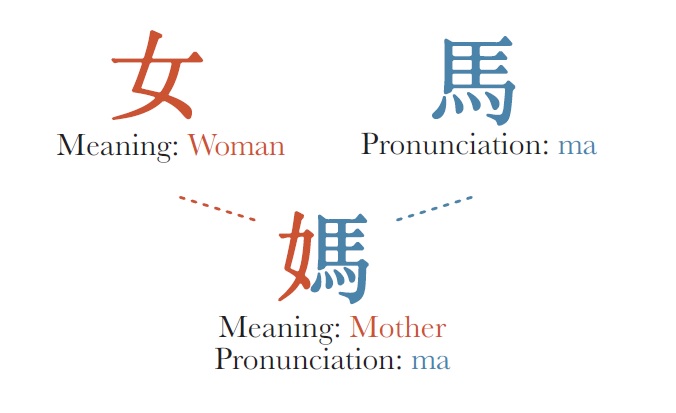
Western brand names in China: Case studies
Below, we listed a number of the most famous and successful foreign brands in China and how they have been transliterated into Chinese characters. It is immediately clear that most of the companies paid great attention to maintaining the sonority of the original name, yet, at the same time, they have adapted the original name to the Chinese phonetic and writing system.
Chinese names of Western automaker brands
| Latin Alphabet | Pin Yin (pronunciation) | Chinese Characters |
| Mercedes-Benz | Méi Sài Dé Sī – Bēnchí | 梅赛德斯-奔驰 |
| Porsche | Bǎo Shí Jié | 保时捷 |
| Jaguar | Jié Bào Qìchē | 捷豹汽车 |
| Audi | Dàzhòng Ào Dí | 大众奥迪 |
| Lexus | Léi Kè Sà Sī | 雷克萨斯 |
| Infiniti | Yīng Fěi Ní Dí | 英菲尼迪 |
| Ferrari | Fǎ Lā Lì | 法拉利 |
| Lamborghini | Lín Bǎo Jiān Ní | 林宝坚尼 |
| Maserati | Mǎ Shā Lā Dì | 玛莎拉蒂 |
| Bentley | Bīn Lì Qìchē | 宾利汽车 |
[Source: Daxue Consulting, Western automaker brand names in Chinese]
Chinese names of Western shoe brands
| Latin Alphabet | Pin Yin (pronunciation) | Chinese Characters |
| Adidas | Ài Dí Dá | 爱迪达 |
| Nike | Nài Kè | 耐克 |
| puma | Biāo Mǎ | 彪马 |
| Reebok | Ruì Bù | 锐步 |
[Source: Daxue Consulting, Western shoe brand names in Chinese]
Chinese names of Western brands of watches
| Latin Alphabet | Pin Yin (pronunciation) | Chinese Characters |
| Rolex | Láolì Shì | 劳力士 |
| Cartier | Kǎ Dì Yà | 卡地亚 |
| Longines | Làng Qín Biǎo | 浪琴表 |
[Source: Daxue Consulting, Western watch brandnames in Chinese]
Chinese names of Western brands of fashion & cosmetics
| Latin Alphabet | Pin Yin (pronunciation) | Chinese Characters |
| l’Oreal | Ōu Lái Yǎ | 欧莱雅 |
| Estée Lauder | Jiā Yǎ Shī Lán Dài | 家雅诗兰黛 |
| Cliniqie | Qiàn Bì | 倩碧 |
[Source: Daxue Consulting, Western beauty products brand names in Chinese]
Chinese name of Western brands of coffee shops
| Latin Alphabet | Pin Yin (pronunciation) | Chinese Characters |
| Nescafé | Què Cháo Kāfēi | 雀巢咖啡 |
| Starbucks | Xīng Bā Kè | 星巴克 |
| Costa | kā Shì Jiā | 咖世家 |
[Source: Daxue Consulting, Western coffee brand names in Chinese]
Chinese name of Western hotels
| Latin Alphabet | Pin Yin (pronunciation) | Chinese Characters |
| Sheraton | xǐ Lái Dēng Jiǔdiàn | 喜来登酒店 |
| Hilton | Xī Ěr Dùn | 希尔顿 |
| Marriott | Wàn Háo Guójì | 万豪国际 |
[Source: Daxue Consulting, Western hotel brand names in Chinese]
Foreign companies’ brand naming in China
When it comes to China, the brand-naming strategy is supposed to be vital for entering the Chinese market. In fact, a chosen company’s name, written in Chinese, may play a considerable role in attracting or losing potential customers. Very often, when foreign companies enter the Chinese market, brand naming may not be one of the top of the priorities of the head office. However, relegating the brand-naming strategy at the margins of the company’s general marketing policy may lead to sound business failures, as even some world-renowned multinationals learned at their expenses.
Microsoft’s sloppy Brand-naming strategy in China
For example, in 2009, Microsoft launched in China its web service known as Bing to compete with Google. The company transliterated its search engine as 必应 “Bìyìng”, which in Chinese literally means “must respond”. That notwithstanding, the Chinese Mandarin pronunciation is very similar to the word for “sickness” 病 “Bìng”. The result of this rather superficial brand-naming strategy may have contributed to the disappointing performance of the search engine, in that it still has a negligible share of the Chinese search engine market. On the other hand, Before it was banned from the mainland in 2010, Google had reached a market share of 38.5%. Behind this success, there are a number of reasons. First of all, the company had taken great care in choosing its Chinese name 谷歌 “Gǔgē”. In fact, to make sure that the new name would please Chinese customers, Google asked its native Chinese employees to adapt the company’s brand to the sonorities of their native language. The Employees tried out all possible character combinations using two Chinese characters which start with the sound “G”; then they voted which one seemed to be the most appropriate to them. To further highlight how important brand-naming can be in China, some time after the Chinese website of Google had been launched, some Chinese netizens—not entirely satisfied with the new name of the company—created noguge.com, where everyone could suggest an alternative name to 谷歌Gǔgē.
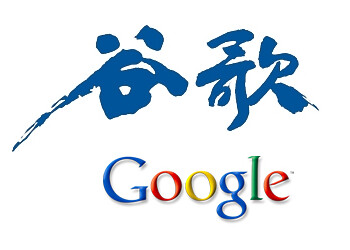
Retaining original names of foreign brands in China
Lastly, some foreign brands prefer to keep their original name to avoid misunderstandings or confusion. However, this approach has been actively criticised in China because many Chinese speakers find foreign names particularly difficult to understand and pronounce. Therefore, to keep the original meaning of their brand name and make it intelligible for Chinese customers, companies like Apple and Microsoft proposed literal translations of their names. In China Apple has become 苹果“Píngguǒ”, which literally means “apple”; whereas Microsoft now is 微软 ”Wéiruǎn”, where “Wéi” is the word for “micro” and “Ruǎn” is the word for “soft”.

Foreign brand naming in China, advice from Daxue Consulting
Shaping a brand-naming strategy in China can create more opportunities, and at the same time, be riddled with challenges that foreign companies must overcome if they are to succeed in the Chinese market. As the experience of some foreign businesses shows, brand-naming is a crucial part of a company’s marketing policy, and its neglect may lead to an untimely business failure. Therefore, the most successful companies rely on consulting companies operating in China like Daxue Consulting, which have the necessary expertise to guide foreign companies through the complex process of branding naming for the Chinese market.
Let China Paradigm have a positive economic impact on your business
Listen to China Paradigm in iTunes
